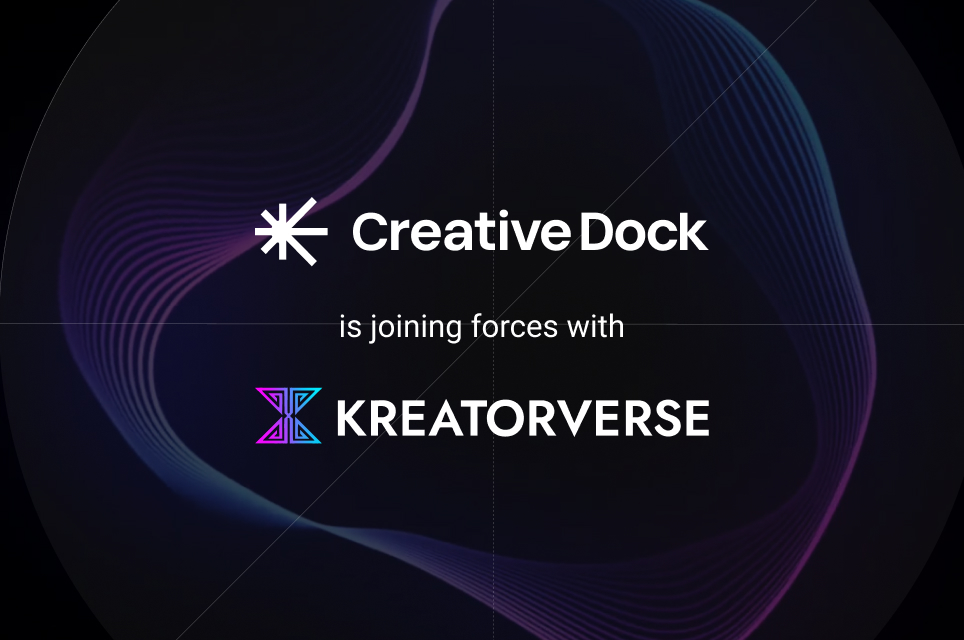Startups need to hustle. Just like scientists.
Theoretical physicist Rudolf Krejcar now builds companies instead of particle accelerators. What’s so alluring about the startup life?


Rudolf Krejcar has been developing innovative products, bringing them to market, and managing teams at Creative Dock for 7+ years. His latest project is Kalkulator.cz, an online comparison service powered by machine learning. Before Creative Dock, he has managed the LGE Mobile Communication Division at LG and worked on various managing positions at Oskar Mobil/Vodafone Czech Republic. He has an MSc. in Nuclear Sciences and Physical Engineering from Czech Technical University and a PhD in Theoretical Physics from Université de Paris.
You are a nuclear physicist with a PhD from Paris. What is your field of specialization?
Theoretical physics. The same as Einstein’s. (laughs) A colleague.
Why did you choose building startups here in Prague over working at, say, CERN?
A long time ago, I had a brief encounter with a startup called Oskar. I was the 120th employee of Cesky mobil, which soon became Oskar Mobil, and now goes under the name of Vodafone Czech Republic. By that time, I had published a few scientific papers and was traveling the world a bit. A friend of mine from a university in France helped me get the job.
The only reason I took it was that I needed some business experience in my resume. Moreover, a cell phone operator sounded really cool at the time, even though I had no clue what working for one meant. And I didn’t want my kids to only see me as this weirdo scientist one day. I looked into the Labor Code and found out that I can leave the company after 3 months without specifying a reason. I liked that — it gave me a taste of the private sector. Oskar hired me for a managerial position and I thought I would be out of there in 3 months. And then I stayed for 10 years.

So your resume was the only reason at first?
Yes. But it was there I quickly realized how lonely theoretical physics was. It can be summed up in 4 words: paper, pen, blackboard, computer. You’re hard at work for weeks, then maybe take part in a lecture or seminar, and the closest you get to working with other people is preparing a paper for a conference. Not a lot of teamwork, all in all. Maybe in applied physics, where you cooperate with 20 other engineers on some kind of cyclotron, sorting out some clever nonsense. (laughs) But theoretical physics means you go to the library, come back with tons of books and articles, and read, read, read. You go through thousands of pages and, if you’re lucky, write a new one based on that. That’s the method in a nutshell.
Or the other way around?
Yes, there are people who’ll read one page and try to make it into thousands. (laughs) But I think the best ones don’t follow this path… Anyway, at Oskar, I found that I really enjoyed creating something new together with other people. That startup spirit captivated me during my first year. After Vodafone, I worked for LG and other companies, but frankly, I kept searching for that first year. And I found it 7 years ago at Creative Dock, where I have been building startups to this day.
“You’ll find great managers and entrepreneurs among scientists. Anyone who wants to make an academic career has to do more that just theorize.”
Are you done with academia for good?
Not entirely. I was in charge of the Research & Development Centre (RDC) at the Czech Technical University in Prague for 3 years, which focused on applied research on mobile networks and applications. We were actually running the fourth Czech mobile operator from the last floor of our faculty. In the end, it was my business experience that paved my way back to the university.
Do scientists need entrepreneurial skills?
Don’t be mistaken, scientists are great businesspeople. Many have proven that. Simply put, if you want to make a living with science, you’ve got to work hard, network, and become well-known in your respective media environment. When I was younger, I noticed there were two main groups of people in quantum physics. There’s a group of sheer geniuses, which is very small. Let’s say 1 in 1000 scientists. These people are completely different and their brains work differently, too. From the outside point of view, they seem like total weirdos. It’s the kind of person who can’t fill a simple form at the post office. But when it comes to science, they’re unmatchable. I have met these Nobel Prize or Fields Medal laureates at conferences, had the privilege to sit next to them at dinner tables, and recognized that I do not belong to that group and never will.
Can you give an example of such a scientist?
When I was doing my PhD in Ukraine, there was this man, Vladimir Drinfeld, who had written a paper on quantum groups. He received a Fields Medal for it. The paper was maybe 10 or 15 pages long. And it took me 2 years to figure it out. Which brings us back to those two groups I was talking about. One person will publish 10 pages, others will spend years writing whole books based on that.
During my research fellowship in Dubna, Russia, I talked to a man who had directly asked Mr. Drinfeld to help him with his doctoral thesis. He only dared to do so because they used to be in the same kindergarten. After meeting him in Ukraine, all he got was one page of pencil handwriting and a piece of advice: “I don’t think this is going anywhere but it could be quite nice and elegant after you elaborate on it and finish it.” The man — who, by the way, used to lead a kolkhoz, a collective farm, prior to 1990 — spent the next 5 years or so deciphering and processing this page. Finally, that work earned him a professorship at a prestigious Western university. So his enterprise paid off in the end.
But going back to the original question, you’ll find great managers and entrepreneurs among scientists. I think anyone who wants to make an academic career has to do more that just theorize. They need to hustle.
“Product is king. It always has been and always will be.”
Do you think that more startups are being built with a scientific approach lately, or is it more of a trial-and-error and relying on “magic”?
The ones using trial and error do have a chance of success. It happens from time to time, usually with people who really put their hearts in it. Yet, the environment I’ve been working in for the past 10 years is different. We start with an idea, develop it, look for a suitable market, and if the business case makes sense, we come up with a lot of calculations and assumptions. Then we kick the project off and begin verifying them. You could say it’s a highly scientific approach.

Does that mean that if I have Creative Dock build a company for me, it’s a safe bet?
Of course not. We work with hypotheses and the probability of success, which we iterate throughout the whole development process. At one point, it becomes quite clear if something works or not. Then it might be necessary to pause and say, “OK, this didn’t work out.” I think many companies find it hard to get rid of something they have invested a lot of energy into. To admit it just won’t work. It’s tempting to compare it to theoretical physics, which is mostly about discovering dead ends.
I know you put a lot of focus on SEO at Kalkulator.cz, your latest project. What is more important these days — building awareness or hard sell?
Product is king. It always has been and always will be. That’s something I learned at LG. When a phone isn’t working properly, you won’t be able to sell it to people no matter how you try. And when it works, they will surprisingly find it on their own. You can’t do anything without an excellent product.
“ You can always start in a garage. The question is whether you can stay in that garage for two years.”
Do you see a difference between the startup scene today and 10 years ago?
I’m not an expert, but I do think it’s more challenging today. A decade ago, there were a lot of empty spaces, especially in the online world, which have been filled since then. These days, everything is more professionalized and it seems to me there’s more capital available on the market. If I remember correctly, 10 years ago it was easier to go to Denmark and get funding, let’s say for a mobile app. You only needed a few good Czech software developers. Today, it’s not that simple. The competition is bigger, primarily coming from Asia.
Could you build a startup worth of millions, like Kalkulator, in a garage?
You can always start in a garage. But you’ll need to hire more people very soon, that’s how it works today. So the question is whether you can stay in that garage for two years. There are types of projects that require precise execution and excellent operational management rather than a great level of innovation. And such projects will need to leave the garage pretty quickly. Simply because one or two people just won’t do it. Or it would take them an awful lot of time. But if you have a brilliant idea, carry it out wherever — under the garage if you will. (laughs) I would love to make use of a space-time hole myself and come up with something great.
Can anybody start something up?
To succeed is certainly more difficult now. On the other hand, I believe it’s easier to get funding for a brilliant idea in today’s Czechia. The money is on the market, there’s no question about that. There’s also a lot more experience and infrastructure. What we do at Creative Dock is a shining example of all this.



.webp)










%20(1).jpg)































































